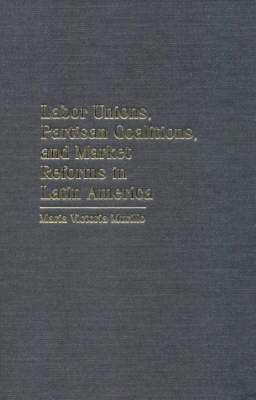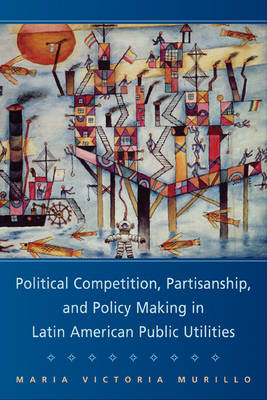Cambridge Studies in Comparative Politics
3 total works
Labor Unions, Partisan Coalitions, and Market Reforms in Latin America
by Maria Victoria Murillo
Published 1 January 2001
Why do labor unions resist economic restructuring and adjustment policies in some countries and in some economic sectors while they submit in other cases? And why do some labor leaders fashion more creative and effective roles for labor unions? This book addresses these critical questions in an in-depth elegant comparative study of Argentina, Mexico, and Venezuela in the 1990s. In each case, the book studies both the role of national confederations as well as individual unions in specific economic sectors in each country. It demonstrates the importance of the presence and nature of alliances between political parties and labor unions as well as the significance of competition between labor unions for the representation of the same set of workers. This work opens new horizons for appreciating the intellectual and practical importance of the variation in the interactions between workers, unions, political parties, and economic policies.
Political Competition, Partisanship, and Policy Making in Latin American Public Utilities
by Maria Victoria Murillo
Published 24 August 2009
This book studies policymaking in the Latin American electricity and telecommunication sectors. Murillo's analysis of the Latin American electricity and telecommunications sectors shows that different degrees of electoral competition and the partisan composition of the government were crucial in resolving policymakers' tension between the interests of voters and the economic incentives generated by international financial markets and private corporations in the context of capital scarcity. Electoral competition by credible challengers dissuaded politicians from adopting policies deemed necessary to attract capital inflows. When electoral competition was low, financial pressures prevailed, but the partisan orientation of reformers shaped the regulatory design of market-friendly reforms. In the post-reform period, moreover, electoral competition and policymakers' partisanship shaped regulatory redistribution between residential consumers, large users, and privatized providers.


